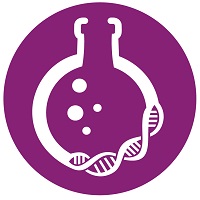Bioanalytics
Considerations for Development of Protein and Enzymatic Assays for Transgene Proteins
Tuesday, October 22, 2024
10:30 AM - 11:00 AM MT
Location: 250 ABC

Xiaojiao Xue, PhD
Sr Principal Scientist
Regeneron
Hot Topic Speaker(s)
Lysosomal storage diseases (LSDs) are a group of metabolic genetic disorders caused by mutations in proteins crucial to lysosomal function. They are characterized by the accumulation of toxic substances in various organs. Gene therapy is being explored as a promising strategy with long-term benefits for LSD treatment by delivering a functional copy of the defective genes.
Given the unique mechanism of gene therapy products, bioanalytical strategies have to be carefully developed to evaluate transgene protein expression, biologic activity, immunogenicity and safety. Currently there is limited regulatory guidance on bioanalytical assay strategies for gene therapies. Here, using a case study, we describe the considerations and challenges encountered for the development of transgene product assays, including a protein quantitation assay and an enzymatic activity assay.
This presentation will cover some key aspects that were considered for sample collection, sample processing conditions and matrix selection based the route of administration and the tissues targeted for efficacy for the given therapeutic modality. For calibrator selection, pros and cons will be discussed for the use of a recombinant surrogate transgene protein versus enzymatic reaction product itself (i.e., 4-Methylumbelliferone (4-MU)). In our case study, when 4-MU is used as the calibrator, interference was observed resulting in a relatively high background. This presentation also discusses potential solutions to eliminate non-specific interference. In addition, sample handling was determined to play an important role in protein and enzymatic assays due to stability issues of the recombinant transgene protein. Therefore, blood and tissue sample collection and handling should be carefully controlled and closely monitored for non-clinical and clinical studies.
Given the unique mechanism of gene therapy products, bioanalytical strategies have to be carefully developed to evaluate transgene protein expression, biologic activity, immunogenicity and safety. Currently there is limited regulatory guidance on bioanalytical assay strategies for gene therapies. Here, using a case study, we describe the considerations and challenges encountered for the development of transgene product assays, including a protein quantitation assay and an enzymatic activity assay.
This presentation will cover some key aspects that were considered for sample collection, sample processing conditions and matrix selection based the route of administration and the tissues targeted for efficacy for the given therapeutic modality. For calibrator selection, pros and cons will be discussed for the use of a recombinant surrogate transgene protein versus enzymatic reaction product itself (i.e., 4-Methylumbelliferone (4-MU)). In our case study, when 4-MU is used as the calibrator, interference was observed resulting in a relatively high background. This presentation also discusses potential solutions to eliminate non-specific interference. In addition, sample handling was determined to play an important role in protein and enzymatic assays due to stability issues of the recombinant transgene protein. Therefore, blood and tissue sample collection and handling should be carefully controlled and closely monitored for non-clinical and clinical studies.
Learning Objectives:
- Upon completion, participants will be able to understand overall bioanalytical strategies to develop transgene protein and enzymatic activity assays for gene therapy products and proper handling of reagents and samples.
- Upon completion, participants will be able to evaluate matrix selection for transgene protein assays.
- Upon completion, participants will be able to describe the pros and cons when choosing recombinant transgene protein or 4-MU as the calibrator for enzymatic assay.
- Upon completion, participants will be able to be cautious about sample collection and handling when developing transgene assays.


